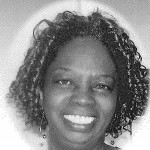When Professor Brad Yourth announced to his Java Programming students that there was going to be a Google Summer of Code contest (GSC), Programming student Shelly Copeland jumped at the opportunity. She created a concept for Android in just a few days. Though she did not win the contest, Yourth said that her work and concept was praised by faculty from MIT and Mills College.
Copeland’s passion for computer programming began in the 1980’s when she owned a Commodore Vic20. That was the first time she ever wrote a program and was able to watch it run. From that time forward, she was hooked. Once Copeland heard about the GSC, she began thinking seriously about her concept for the project. The concept she chose was a combination of the types of technology her chosen organization was interested in, combined with practicality. “I wanted to come up with an idea that could help people in their everyday lives, something people actually need,” she said.
Copeland feels that her application would benefit others because it would allow people to use sensory data to monitor a person’s health, without having to open and record it on a daily or weekly basis. The data would be monitored using a wireless monitor already available as a health and wellness aid. The device is about the size of a watch. A probe automatically records the data from the wireless monitor. In the event of a trauma, such as an increased heart rate or cardiac arrest, a programmed event would occur, such as calling 911, or alerting family members or a physician. This critical data could also easily be transferred through NFC to a hospital or EMS vehicle. If someone is in cardiac arrest, it is difficult to push a button, use a phone, or open an application for a paramedic, so it is important that critical data be readily available if someone is unconscious. Copeland feels that this could “revolutionize how critical healthcare data is processed for patients that are at high risk such as after heart surgery and end-of-term care for hospice patients.
“In my opinion, mobile development is the future. So the skills I acquired while working on this project are of utmost importance to me. Mobile developers who can build marketable mobile sites and apps are currently in high demand, she said.” In the future, Copeland hopes to earn her Master’s Degree in Computer Science, specifically honing in on developing a uniform operating system that can run across platforms such as Android, Mac and PC’s alike.


